Palestinian President Abbas’ speech at the United Nations on Friday seemed to have fulfilled the highest hopes of many. Aziz Abu Sarah could hardly contain his excitement (watch him try). Joseph Dana reports elation in Ramallah, which was obvious from the live images on Al-Jazeera. Lisa Goldman at the UN felt the emotional reverberations of the speech inside the UN.
East Jerusalem, supposed to be the beating heart of the Palestinian national statehood movement, the future capital, felt quite different. It was subdued – almost anti-climactic.
After much deliberation, I had decided to watch the speeches by the Damascus Gate of the Old City, lured by reports that a large screen would be set up to serve the elated crowds. We hurried to Jerusalem after a short trip to Qalandia, near Ramallah, where action was already in evidence: the crossing was littered with rocks, and the stones-versus-tear gas battle was still going strong at dusk. As the sun set, the electricity seemed to rise.
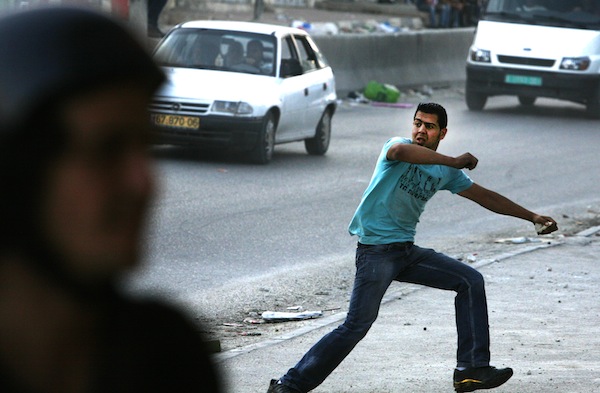
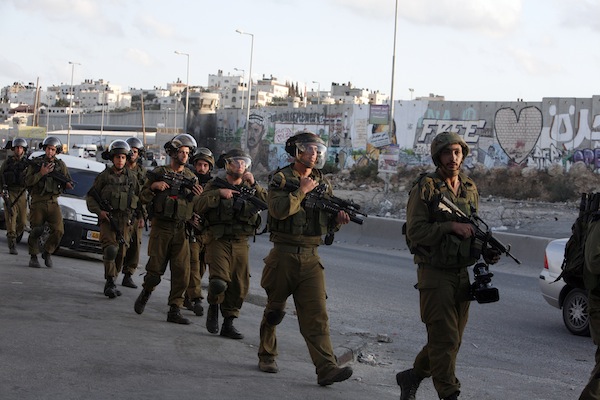
All that dissipated on the five-minute drive back to Jerusalem, which was quieting down in anticipation of Sabbath, just like any other week. Ultra-orthodox Jews in satin robes and streimels streamed toward the Damascus Gate to enter the Old City for prayers – ignoring the soldiers and the small clusters of confused press, and the few curious Palestinians standing around. One French photographer sighed through his cigarette and said “I’ve been in ze wrong place all day.” That turned out to be Silwan, then Hevron – and he obviously believed this to be another “wrong place.”
Soon it became clear that there would be no big screen, and no projection of the speech onto the Old City walls. We did notice that a small hummus/grill place just across the street had set up a medium sized flat-screen, and was throwing chickens on the grill while setting up some chairs like a makeshift picnic-theater. The seats slowly began to fill up while Al-Jazeera projected images of the cheering crowds in Ramallah.
Finally, as the speech began, a small ring gathered to stand around the chairs, now full. The crowd was quiet, breaking out into applause a few times, mostly at the behest of a man who seemed to have designated himself the applause-leader. He even got people to stand, or chant, a few times.
Most were men, but there were some women and a few amused kids. Older men who looked like venerated elders sat in the front, sipping tea. Did I mention the feeling of an end-of-summer barbeque/picnic?
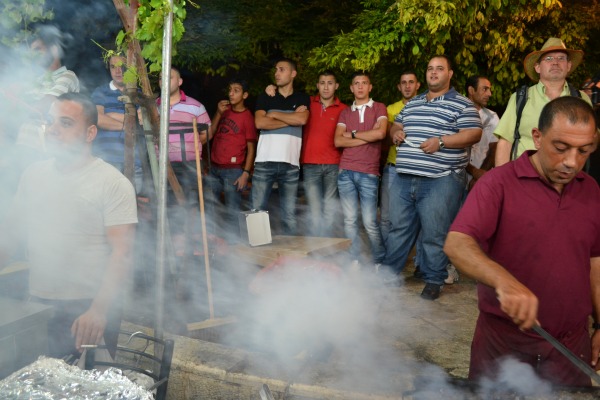
The speech went on. A Palestinian man near me leaned over to a foreigner and said in English: “He talks a lot.” Toward the end, Abu Mazen garnered a bit more applause, when he said that the time has come to end Palestinian suffering, and then quoted Palestinian poet Mahmoud Darwish.
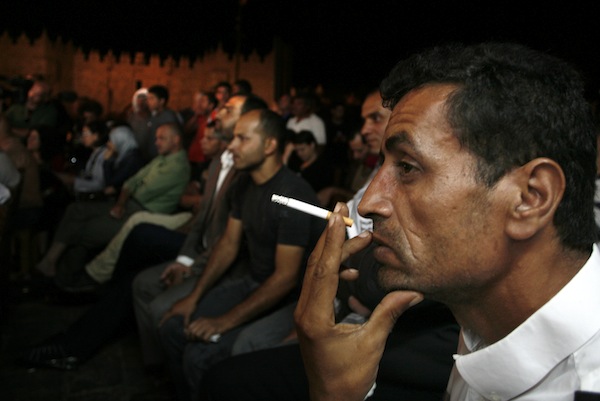
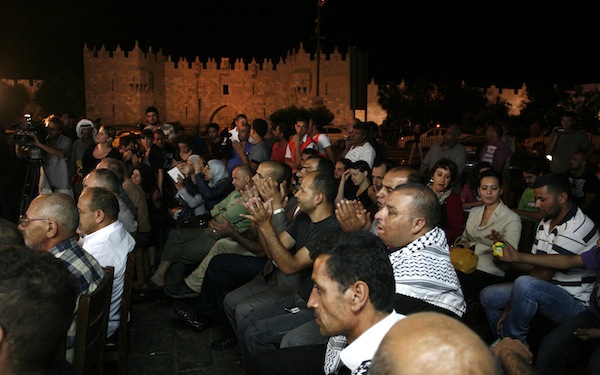
And when Abbas finally finished his speech, the audience broke out into happy, controlled applause. They stood up and a young woman led a short round of cheering. Photographers crowded in for a shot, making the group look like a tightly packed beehive for minute.
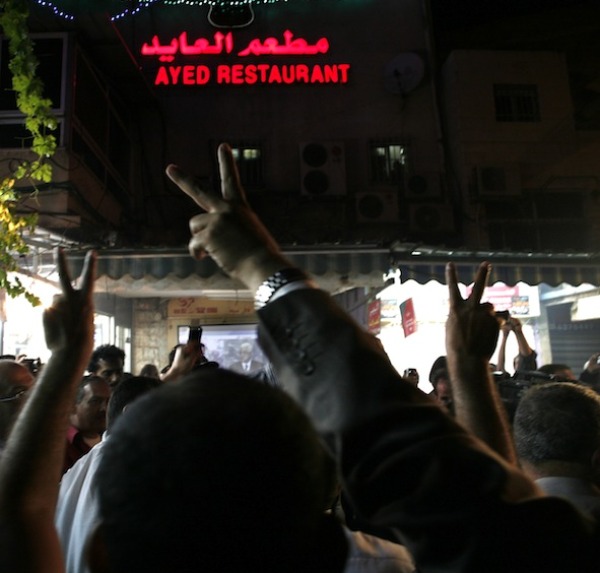
The next minute, the lights went down. The group broke up, crews packed their gear and people drifted away. Suddenly the little square seemed empty and real activity shifted back to the fruit and vegetable markets that were still open down the street. Streetlights illuminated piles of bright red and yellow peppers, pomegranates and guavas lined the sidewalks as we walked away from the Old City, now quiet and timeless once again.
I hoped people were more excited in Ramallah and New York. It was a pleasant evening, but a sober reminder that Palestinian society is not only divided between Gaza and the West Bank. The endless burden of checkpoints, barriers and permits has cut off West Bank residents from East Jerusalemites, severing them politically and geographically, as well as economically, from their people. The separation wall completes the job, cutting off those Palestinians in Jerusalem, from those around Jerusalem. While the media is busily speculating about the fate of Israeli settlers in the West Bank, hardly anyone talks about what will happen to the East Jerusalem Palestinians who are residents in Israel but non-citizens, unable to vote, but unsure what kind of relationship they will ever have with greater Palestinian society.
About two years ago, I interviewed an Arab citizen who lives in West Jerusalem. He said that Palestinian residents of East Jerusalem, like slaves, are too afraid to even try and defy their master and hardly raise their voices for their own cause.
Watching them, it was hard to believe that many of those who gathered for Abu Mazen and chicken on Friday evening really believed the speech, or perhaps even the statehood bid, will change their lives. Still, I retain some hope. Maybe they went home armed with inspiration to help them wait out the coming days, weeks or years, or as long as it takes to live like a free people, in their land.


